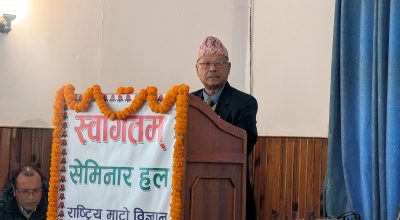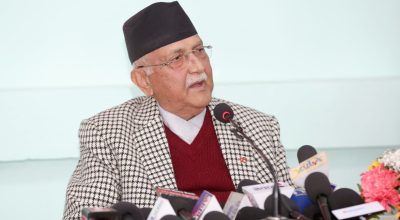
Kathmandu, Dec 25, 2019 : The BP Koirala Memorial Planetarium, Observatory and Science Museum Development Board have made arrangements for viewing the solar eclipse with the help of telescope from 8am on Thursday.
Board officiating executive director Dr Sanat Kumar Sharma said arrangements have been made for directly observing the solar eclipse through telescope with the objective of supporting in cultivating scientific conscience and culture among the general public.
According to him, solar filter has been fitted in the telescope based at the Board’s office at Kirtipur for observing the eclipse safely.
Similarly, Nepal Astronomical Society has made arrangements for viewing the solar eclipse with the help of telescope. This facility will be available for the interested people at the Society’s office at Battisputali, Society president Suresh Bhattarai said.
The Board has also made public facts related to the partial solar eclipse as observed from three places of the country. It has shared to the public the pure facts and figures of the eclipse to be observed from Kathmandu, Mahendranagar and Bhadrapur, calculated mathematically and scientifically.
As per the facts shared by the Board, the eclipse will start in Kathmandu at 8.43 am, at 8.38 am in Mahendranagar and at 8.48 am in Bhadrapur. Likewise, the eclipse will reach its median time at 10.01 am in Kathmandu, at 9.52 am in Mahendranagar and at 9.59 am at Bhadrapur. The eclipse will end at 11.33 am in Kathmandu, at 11.19 am in Mahendranagar and at 11.27 am in Bhadrapur.
Similarly, the duration of the eclipse will be of two hours 50 minutes in Kathmandu, of two hours 43 minutes in Mahendranagar and of two hours 53 minutes in Bhadrapur.
The Board stated that the eclipse’s percentage in Kathmandu and Mahendranagar would be 39 and 36 in Bhadrapur.
The solar eclipse this time can be observed from Nepal in the form of penumbra and partial only. It can also be seen in the form of a ring on a band of around 100 kilometres from some parts of the Earth, according to Sharma.
—
















